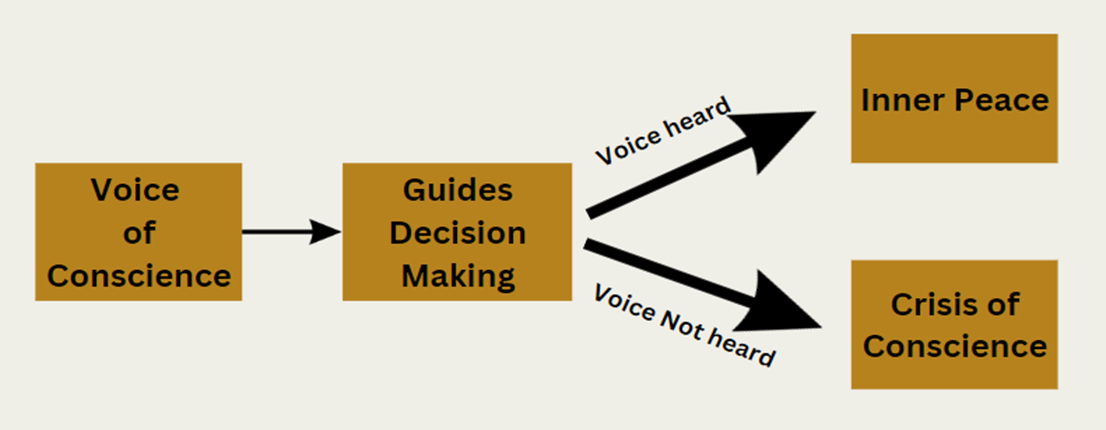29-07-2025 Mains Question Answer
he “voice of conscience” is the inner voice that guides individuals to act according to their values, beliefs, and principles. It guides the judgment of right and wrong and influences the behaviour of the person accordingly. Social reformers like Raja Rammohan Roy and Ishwar Chandra Vidyasagar challenged the social dogmas and evil practices like Sati, idolatry, priestly dominance, and no widow remarriage, by listening to conscience.
The various perspectives towards the voice of conscience include:
- Religious entities consider this voice of conscience as an element of God within all of us.
- Philosophers consider this voice of conscience as the innate moral sense within individuals based on reason.
- Psychologists consider the voice of conscience as a result of cognitive development & socialisation.
By helping a poor person on the street, you put the value of love and empathy into action which makes you happy. When a person values something as well as acts upon it, he/she gets a feeling of well-being and happiness as the person hears the voice of conscience. But, when a person who values honesty has to lie or steal something to feed hungry children, he gets a feeling of remorse as he did not hear the voice of conscience. Dayanand Saraswati named this condition as a Knower-doer split.
Listening to one’s conscience is important for several reasons:
- Listening to one’s conscience helps build a strong and virtuous character. It cultivates traits such as honesty, empathy, and responsibility, which are essential for leading a morally upright life.
- Listening to conscience ensures that one acts consistently with their values, fostering a sense of self-respect and authenticity.
- It serves as an internal check that prompts individuals to consider the consequences of their actions.
- It encourages self-reflection and critical thinking about one’s actions and their impact on others, leading to a deeper understanding of one’s moral responsibilities.
- By listening to the voice of conscience, individuals can avoid actions that they might later regret. It helps prevent feelings of guilt and remorse that arise from acting against one’s ethical beliefs.
- Ignoring or suppressing your conscience can lead to feelings of guilt, shame, or moral distress

In a world full of tough choices, our conscience shines bright, guiding us toward integrity, justice and compassion. Its importance can be understood from the words of Mahatma Gandhi – “Human voice can never reach the distance covered by the still small voice of conscience.”

